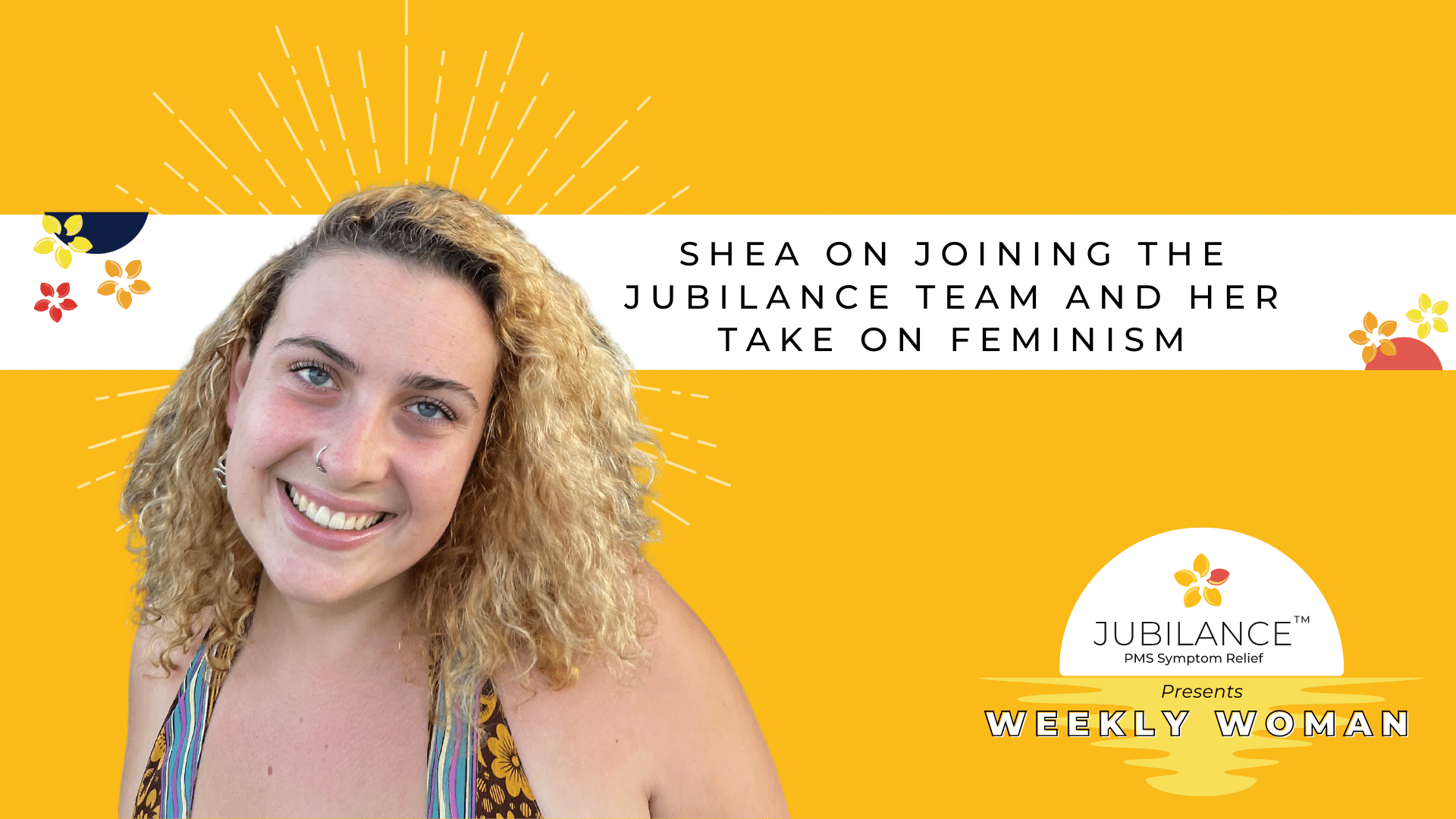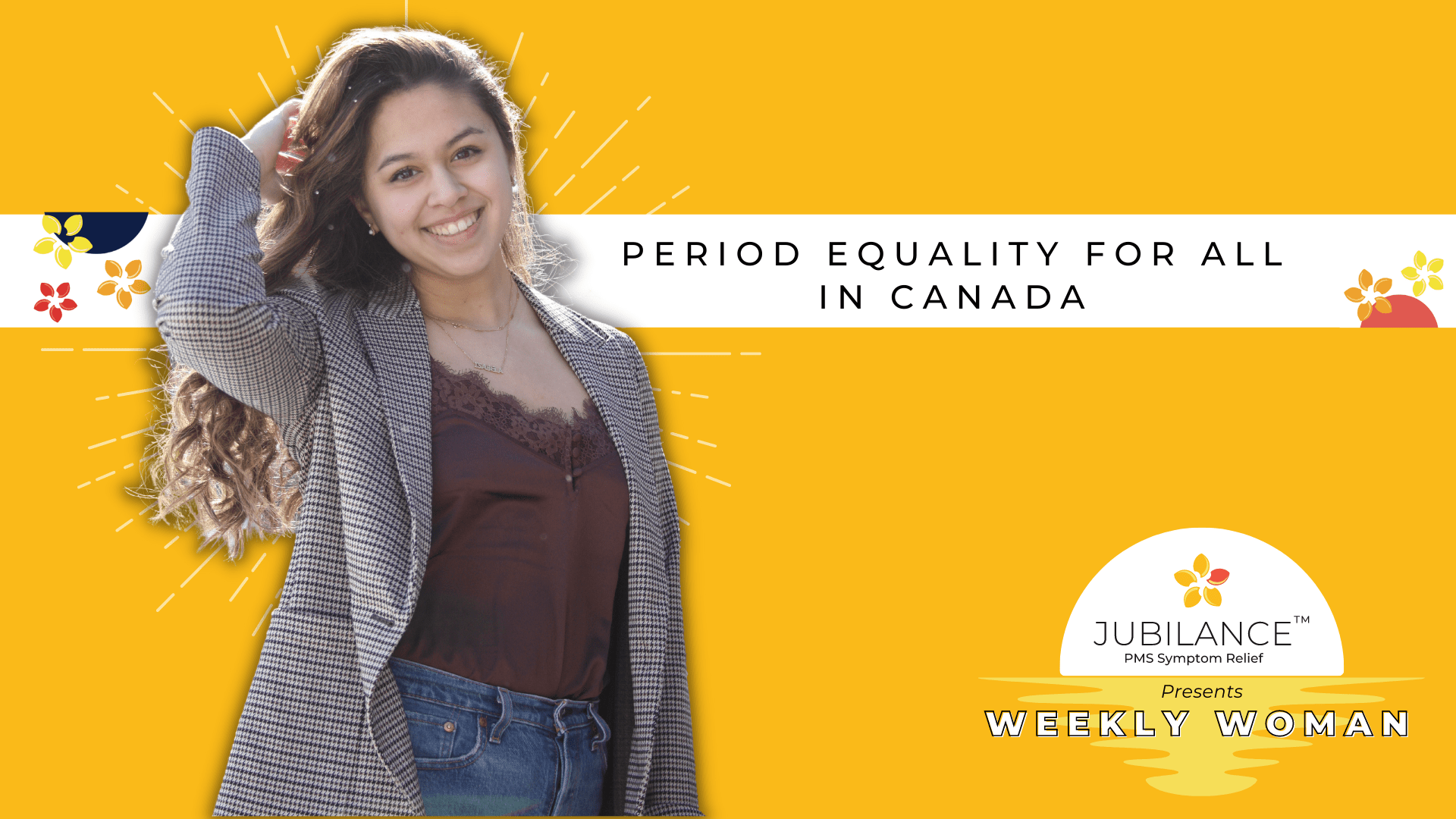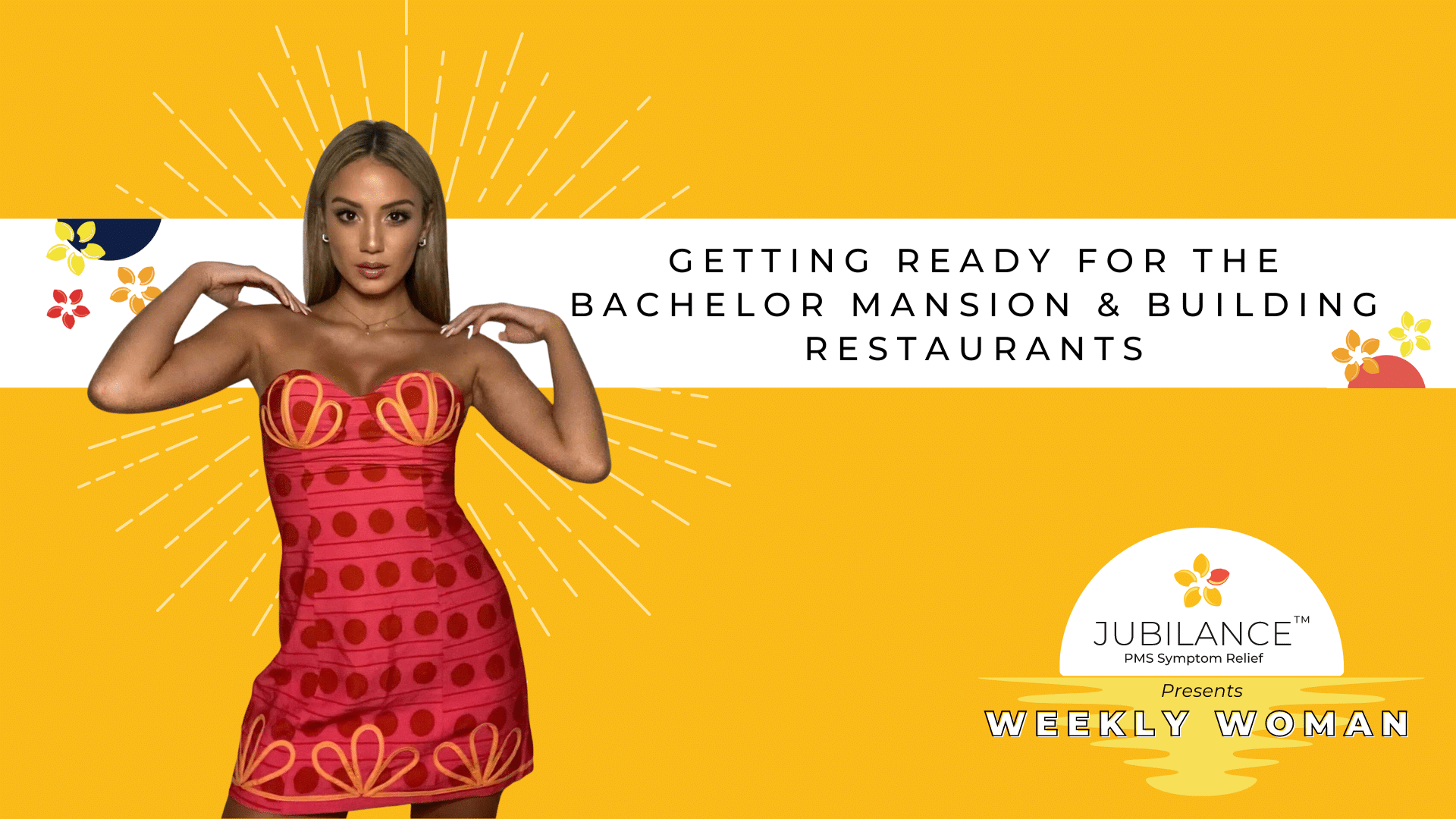Red Drop is the first feminine hygiene brand designed specifically to empower school age tweens. Research shows and parents know that during puberty, they need more than just a pad. RedDrop provides the products your tweens need and the support their parents can use, to grow strong women.
Co-Founder Dana Roberts joins us on the podcast to discuss starting Red Drop while working in education and then realizing that menstruators needed education on their bodies, as well as products that weren’t aimed at adult sizes.
Watch her interview now:
Listen to her interview now:
Read her interview now:
Alice: Well, it is so nice to get to have you, Dana. We’ve been talking for a while and I’m so excited to hear more about Red Drop. So welcome to the podcast.
Dana Roberts: Thank you for having me here and thank you for your patience. I really appreciate you. Thinking about what me, but I’m so happy to be here.
Alice: Yeah, amazing. Okay, so can you tell us where you are in the world right now?
Dana: I am in Atlanta. I was born and raised in Atlanta. And this is my home and I am in my comfy little office in Atlanta.
Alice: That’s amazing. I was actually in Atlanta for the first time in November and I loved it. It’s just beautiful. And all the different neighborhoods, I just fell in love.
Dana: Atlanta is definitely a special place. It really is. It really has kind of the best of all worlds. You can slow down, you can go fast, you can have good food, good nightlife. So yeah, come back.
Alice: Yeah, I have to. Yeah, the food was so good. I had so much barbecue and it was a dream.
Dana: Yeah, you got to come back. And when you come back, I’ll take you to a couple of hidden gems, you know.
Alice: Amazing. And so you started Red Drop. Can you talk a little bit about what is Red Drop to our listeners?
Dana: Sure. So Red Drop is a company that I started, co-founded with Monica Williams, who is a family friend. And really how it came to be, is that I am a lifelong educator. Started off as a teacher, teaching drama and reading. And honestly, my first thing experience in teaching, my middle school was the school for the girl’s foster group home and it impacted me greatly for a couple of reasons.
I am adopted and so of course, I could see myself in those girls, right? And then I just realized like they’re, you know, is a subset of people, of humans who don’t have all of the things that they need which is really crazy to me. And these are girls, right? And so, I just started giving them products, and then what happened is that I transitioned and started teaching somewhere else. And then I had the opportunity to teach at a single-gender school, which you’re talking about twenty girls, all in one glass. And you’re like, oh my God, like literally, this is what I decided to do every day?
Alice: Oh my God, they must all be going through PMS at the same time.
Dana: At the same time. So this was a fifth-grade girls’ class. and the irony in it, which I think that I look back on my oldest daughter Sterling, who is about to approach twenty-four, was in the class. Atop my own daughter, that’s crazy. And more than half of those girls started their periods with me at school. With the exception of my own daughter.
So, you know, they were starting their periods with me and you had the whole kind of gamete, right? You know, some girls were prepared. At least they understood what a period was. They understood their body, etcetera. And then you had girls who had no idea what was happening to them. I tell a story where I had a girl who asked me, we were in the bathroom stall and she asked me, “Miss Roberts, am I dying?” And I was like, “No baby, you’re not dying.”
It really touched me. And, and to be transparent, it touched me because I could see my daughter like and I was like, oh my gosh like this cannot happen for my daughter. And by that time, I also had another daughter so I was just looking at my two girls and I was like, I have a responsibility A, to ensure that this never happens. B, to ensure that I wouldn’t place anybody else, stakeholder or caretaker in this situation where they’re having to navigate my own daughter’s emotional trauma with a natural bodily function.
And so I made a pact to myself. I was like this isn’t going to happen. I am going to put together these little kits and I’m going to make sure all my girls have them and we just got to a point at school they knew where to go for our products. But also they knew to come to me and for us to have very candid conversations about their body.
In unison, I was equally surprised that the adult women that I was interacting with as their parents or caretakers are equally traumatized for the most part. That was really surprising to me because my mother was very open with me. And I have memories of parents, of moms crying on the phone with me about their daughter. Some, of course, crying because they didn’t feel like they prepared them. They felt a little guilty somewhere, “Oh my gosh. My daughter is a woman,” those things.
And I just realized that I didn’t want that. I really had the opportunity to try to shift the narrative of a natural bodily function and impact as many girls as I could.
So, I went to my- I call her my godsister, Monica, and she’s a serious entrepreneur. And at that time, she was working on a venture called Pacimal. It was where you had the pacifier with the little stuffed animal. She created that.
Alice: Oh cool.
Dana: Yeah, and my niece, her daughter. My niece was a baby at that time and she was like, looking at me like, “That sounds great. Like your idea, sounds great,” but she really didn’t see the value in it because her baby was an infant. And she’s a doctor by the way. And so fast forward, ten years, I’m still kind of doing the things that I’m doing collectively and she calls me and she says, “I need to talk to you. Remember that idea you had?” And I was like, “Yeah, because McKenzie is about to start her period. So let’s talk about it,”
And that’s how the next kind of journey of Red Drop was born. And we looked at it holistically together. And you know, how could we really impact girls? And we started just to be very intentional about what we offer. So, we realize that the pads or products in the stores weren’t really truly made for girls and even the teen products. Like if you’re talking about a girl who is about to transition to our first period, you’re talking about fifth, sixth-grade girls. Their body frame is made up differently, it’s just that it’s just a different experience.
And so that’s where we landed that we were going to make an impact. To create products for girls as they transition to their first period and beyond. And that’s how Red Drop really came to be. And we launched in the pandemic.
Alice: Wow. Oh my gosh.
Dana: Yeah. We launched in the pandemic and it was honestly the best time because people were at home and we were able to have real conversations. You couldn’t go anywhere so it’s like we’re going to sit here and have this conversation and we’ve been kind of full steam ahead ever since.
Alice: That’s amazing, Dana. I can’t believe it’s like this idea that you had so early on and then have finally realized. It just took your friend to like have their child be menstruating as well.
Dana: Yeah, I mean, but you know what? That’s really kind of the trend. When you really think about it, women, don’t remember their first period until honestly, they’re forced to remember it. And that usually comes with some type of, I hate to say it, but either a traumatic experience, right? Or you’re forced to remember it with your own daughter or niece or whatever girl in your life. And so you’re starting to try to recollect, your first period.
And for some of us, that was a while ago. There’s a kind of a gap, right? A gap of memory, a gap of what was the norm that then when we started versus girls today and their access to technology and different information. And so women, since I started this business, women come up to me all the time. They’re like, “I want to tell you. I remember my first time,” and I’m like, “You do? Okay. Well tell me about it,” and is usually either very traumatic, right? Or very easy.
Alice: Yeah. There’s no in between there.
Dana: But what I learned is that women do want to talk about it. It is a memory and it is something that they do want to really articulate and really kind of get it out and be able to have the conversation about it, where it’s not under kind of big umbrella of being a taboo or as a secret.
Alice: Yeah, and I’d love that about RedDrop and just even like your social media presence. You’re really going after and talking about what this is because so much about red drop is the education component. Can you talk a little bit about that?
Dana: Yeah, sure. So, the teacher in me, right? That was a really big part because what I realized was early on, I was giving girls products but I really needed to like earnestly walk them through the process of how you even use the pad. What is going on with your body? Like, “No, baby, you know, you might not get another period for a couple of months or even a year after your first period.”
And so realizing that there was such a gap of knowledge, then part of Red Drop’s mission is to educate and empower and so we actually just launched an 8-part puberty series wherein the comfort of your home, we have a medical student who walks you through anatomy, biology, how to like use a tampon, how to use the pad, like real demonstrations. Because we take for granted that moms have shared that. And sometimes I get feedback that we don’t want to Mom-shame, right? And I understand that, but that’s not even my intent.
My intent is to just say, you know what? I don’t take for granted that somebody didn’t teach their mom. So now collectively, together, mom and Red Drop, we’re teaching her, your daughter, your girl, so we can change the trajectory of the conversation for generations to come.
Alice: That’s amazing.
Dana: Thank you.
Alice: And so necessary to talk about it, I think and to get the conversation out there. This podcast and company I work for, Jubilance for PMS, we’re trying to get that conversation going and to say that it’s not a taboo, which is why we want to have a platform for people to talk about menstruation and the work that they’re doing within it, which is so cool what you’re doing.
Dana: Thank you. I think the first step for that is separating the administration period from sexuality. Right? And I say that because- and maybe it’s the South thing. But I remember getting my period and my grandmother and my aunt were like, “Oh my gosh, you can have a baby now.” Andf I’m like, “What? Like, I just started my period, like, I don’t know what you’re talking about.” And a push for us is really desexualizing period because it is a natural bodily function.
Alice: Cool.
Dana: Yeah, we’re not even talking about sex, right? We’re not even talking about that. We’re talking about really reproductive health and making sure that your body is functioning the way it’s supposed to, just for your overall health. It’s really important because oftentimes- and that is through trauma and that is through just how we’ve been raised, generational. We collaborate or we partner sex with period and we should not do that.
Alice: That’s so interesting because I remember my first sex-ed class in fifth grade, I believe, was all about having a baby and sex, and then like your period was part of that. And so, I think like your idea of creating this education of just like, “This is the woman’s body. This is what happens,” and that is so much later like they can learn about it, of course, but like this is your body and this is what happens with it. It’s not this external thing that also comes.
Dana: I mean you have so much time to talk about it. I mean it isn’t going anywhere. So I mean, really what you should want is, you should want a girl to really know about every single part of her body and I’m a firm believer that when a girl knows about her body, as early as you feel like she can digest it, that it really empowers her to really protect herself in other ways. Because she knows like, “No. My vagina is a sacred space. This is what happens. And no, you cannot invade my personal space,” those things.
And I think it correlates that way, but it starts with just simple education, simple conversation. And I think we all do the best that we can. So now we’re just trying to figure out with this emerging generation that has access to every single thing at their fingertips, you know, where’s the balance.
Alice: It’s like how do you get that information to them in an educational way that doesn’t traumatize like you said.
Dana: Yeah, and really to curtails the myth that you could find in any Google search. If you do a Google search about periods, I mean you would see some of the craziest things, the craziest thing, but people are actually asking those things.
Alice: Oh no. Yes. Yeah, that’s true. Oh my gosh, and can you talk a little bit more about your education in the classrooms. I know that you’re partnering with a teacher up in Buffalo. Can you talk a little bit about that?
Dana: Miss Galante, yes. Miss Galante, actually was one of my former teachers when I was an administrator and she moved to Buffalo. She was from Buffalo. She moved back to Buffalo from Atlanta. And what she asked for, she does stay in an area where unfortunately period poverty is real. And so what she asked for was support and really products for her students.
And so what we did was we partnered. She started a- not a GoFundMe. She started a donor campaign. And people donate and we met some of the donations and so she got seven hundred and fifty kits for her students in Buffalo Public City Schools, I think that’s how they say it. And then we’re talking about how do we get the puberty series to her.
I will tell you, it’s a little harder in a school setting, and this sounds a little crazier but I’m going to say it. It’s a little harder in a school setting because every state has a curriculum, right? That curriculum is adopted to what they believe a girl should learn at an appropriate age. So if we’re really going to make an impact with the puberty series, it’s really going to have to be, I think, through caretakers and through organizations that serve girls like a girl’s inc or you know organizations that are very specific in their mission. Girl Scouts, right? To serve girls and go through kind of those organizations when we talk about the Beauty series.
Alice: That’s so interesting. I would think that the schools would embrace something like this, but it makes sense that you have to find these external sources to be able to share this education series, which is- this part mean and just a fact.
Dana: No, it’s so funny because a medical student Talisha is from Utah, which is one of the most non-progressive…
Alice: Good way to say that.
Dana: … state. As it relates to just even learning about your body. Right? And so, that was the irony and finding her. And really it was because she was so passionate about how she went through school, and she was like abstinent. There we go again, putting sex with period, they’re married together in their curriculum. And it really is problematic sometimes for us to go through the school or go through kind of the State Board of Education.
We’re hoping it’s going to get easier as we’re having more open conversations and more states are jumping on board. And I’m really glad about that about, you know, free access to products for public institutions. But we got a long way to go.
Alice: Yes, unfortunately, which is kind of why we’re talking today. To get that word out there.
Dana: We got a long way to go. But I mean, it’s definitely better than it was when we first started. When I first started this 20-plus years ago of even having a conversation about your period with anyone, I do feel like people are much more open now to have those conversations, which is a good thing.
Alice: That is a good thing. We’ll just see how it continues to progress, and I’m sure you’ll be at the forefront of it.
Dana: No, but I hope so. I hope at least, that we can say that we’ve made an impact, for girls.
Alice: You already have.
Dana: We’re getting there.
Alice: You already have. Please.
Dana: Thank you. We’re getting there.
Alice: And Dana, something that I always ask on this show and it might change like the second you say it or like the next day, whatever. What is your definition of womanhood?
Dana: That’s a good one. My definition of womanhood is… courageous femininity. I’m from the South and so- Monica laughs at me, if she was here, she would crack up laughing, but I am very much a Southern belle. I love very feminine things. But I am fierce, a fierce lioness, when it comes to children, period because that’s just my passion and what I do every day. But yeah, that’s what I would say womanhood is. I can’t even remember what I said, but courageous femininity.
Alice: Yeah, and I love that idea of like the lioness in the den. I can just feel that emanating from you of how you talk about your students and the work that you’re doing, which is so cool.
Dana: Thank you. I appreciate that.
Alice: And then, another thing we always ask is, if you could give advice to your younger self, what would it be?
Dana: If I could give advice to my younger self, I would tell my younger self to go after every single thing you want. Every single thing you want and it’s okay if you fail. It’s okay.
Alice: Yeah, we all fail, many, many times but just picking ourselves back up and I love that going after everything you want.
Dana: Yeah. I guess as you get older, you really learned that you’re- especially your mom- and it was just me and my mom, so that’s my point of reference, was a woman too, right? And she was doing the best that she could. And growing and maturing, you know as a woman, right? And sometimes you instill fear without even knowing you instill it if that makes sense.
So you’re like, “Oh, you can do that but just in case you don’t get- just in case, you need to fall back on this.” With my own personal daughters, I’m like, “Go do whatever you want.” My oldest daughter graduated from SCAD[?] and she wanted to be a curator and now she’s working in beauty marketing with Estee Lauder and that’s not a traditional pathway. Right?
Especially, to be very honest, for a black woman, it’s not safe, if I could say that. But I didn’t want her to be safe. I wanted her to literally go do exactly whatever you want to do.
Alice: That’s amazing.
Dana: Yeah, so I would tell my younger self that
Alice: Yeah, and what an amazing school. And then to go to Estee Lauder. Is she in New York, then?
Dana: She is in New York. She stays home because of the pandemic and then she was like, “Mom. I want to move to New York, “even though she was working virtually. And I was like, “You should. You absolutely should move to New York.”
Alice: That’s awesome.
Dana: And so now she’s in New York, and it’s honestly very kind of a circle for me because I wanted to move to New York when I graduated high school and my mom was like, “No.” And I was like, “Well, why don’t you help me?” Like I really was into theater and for drama. And she was just like. “That’s not a safe place, Dana. You don’t know if you’re going to make it.”
That really impacted me. And so for her to be in New York doing something completely different but just in New York, just kind of living her life, I’m just like, “Ahhhh!”
Alice: That’s amazing. Have you gone to visit her yet?
Dana: No, I have not. And that’s funny too because I’m like, my child is living up there. I don’t know. I know she’s living fine. I know who she’s living with. It’s fine, but she’s actually about to transition to her first apartment. And I was like, “Do you want me to come and help you move?” She’s like, “No, I’m fine. I got it.” And I’m like, “Okay.” Because I have to go back and say, “Dana, you prepared her for this. You got to take your ego out of it,” which is hard. And be like, “Okay. I’m going to see how she does this,” because I obviously have prepared her for this and we’ll see what works.
Alice: It sounds like you’ve prepared all your girls, whether they’re your daughters or the students that you’ve taught, you’ve prepared them all to be a woman and to be feminists and to be okay about their bodies. So I think that’s amazing what you’re doing with RedDrop and what you’ve done with your girls, all of them.
Dana: Thank you. I appreciate that.
Alice: So Dana, what is next for Red Drop?
Dana: Oh my gosh, what is next for us? So we’re launching, of course, the puberty series and it is live on our website so you can go on, and really we’re just ramping up. We were impacted terribly by the global supply chain crisis.
Alice: Oh gosh.
Dana: There were days that I didn’t think Red Drop would exist just because we were waiting or our inventory was sitting on the port for months. It was a really real thing for us. And a real thing for us is raising capital, right?
Alice: Yeah.
Dana: Just trying to continue to do that and have that. And I’m very happy to say that we have inventory in and we’re just trying to sell. We’re just trying to make an impact for girls to get, you know, for them to get the products. We’re starting now because we have inventory to do more face-to-face events because the world is opening up more, and I love that. I love being able to walk girls through like “Here’s your period kit. Let’s open it up. Let’s talk about how you use these products. Why you use them? When to use them?” That’s really my passion.
Alice: That’s awesome. So yeah, we’re getting there. And probably, by the end of this year, we’ll have a formal Red Drop foundation so we can make more of an impact through the foundation part. And Monica would kill me if I didn’t mention this, but we’re launching Period Panties. Oh my God, everyone loves those. Okay, cool.
Dana: You know what? I’m that Southern Mama that had to be like, “Okay, let’s talk about these.” These are different, right? They’re very different. And my oldest, Sterling, and my middle baby, Kamani, they tested them for me and they love them. And I’m like “Y’all really like these?” and they’re like, “Mom, like this is it. Like this is what we’re doing,”
And I find that so empowering. You can have a panty that is environmentally sustainable. You can keep them for three- longer than that if you take care of them. It kind of curtails like real accident. And so I’m like, “Where was this when I need it?”
Alice: Oh, yeah, I could have definitely used those growing up. Oh my God. I have so many stories.
Dana: I know. So that’s what’s next for us. Thank you for asking. We’re super excited.
Alice: That’s awesome, Dana. And so, how do you our listeners find out more about Red Drop? How can they find you guys?
Dana: Well, you can find us on Instagram @RedDrop, R-E-D-D-R-O-P. And you can find us our website, is tryreddrops.com, and we’re also on Facebook @RedDrop.
Alice: Amazing. Thank you so much, Dana. It was amazing to get to talk to you today.
Dana: Thank you so much.








